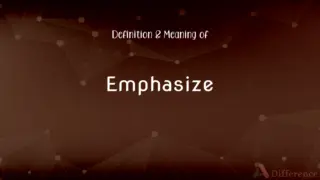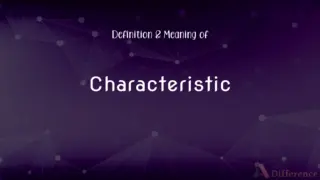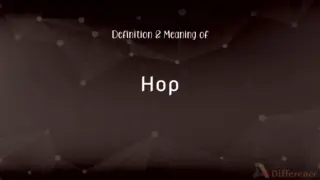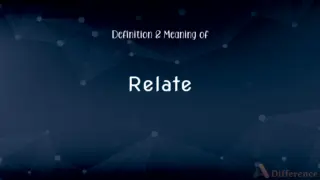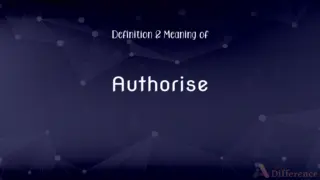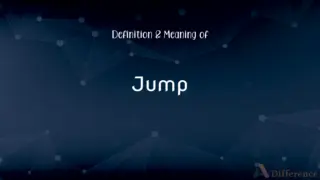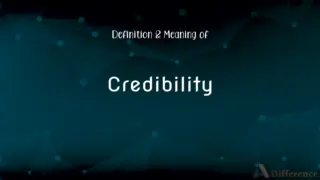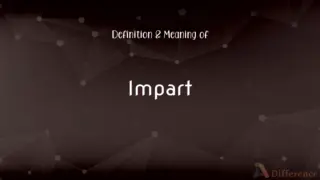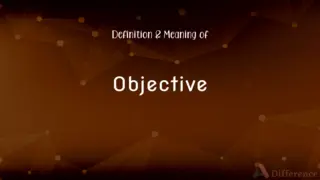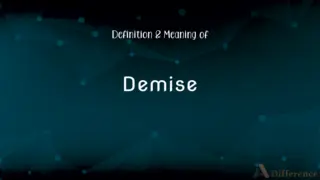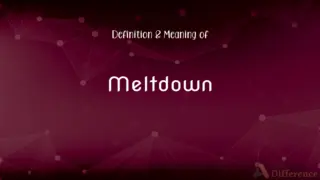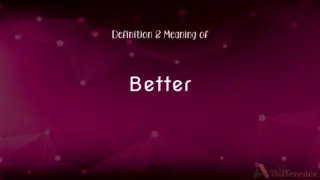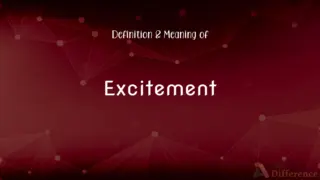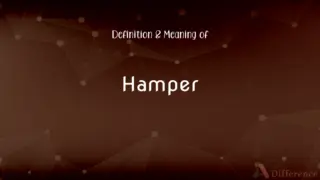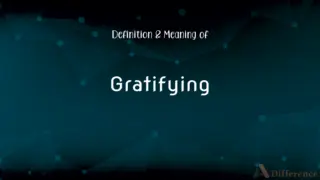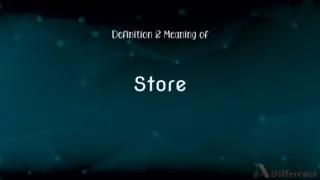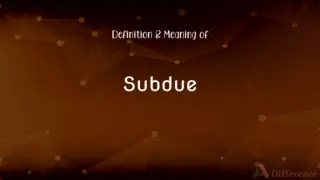Withdraw Definition and Meaning
By Tayyaba Rehman & Fiza Rafique — Published on March 12, 2024
Withdraw refers to take back or remove from a place or position; to retreat or retire. e.g., He decided to withdraw his candidacy just before the election.
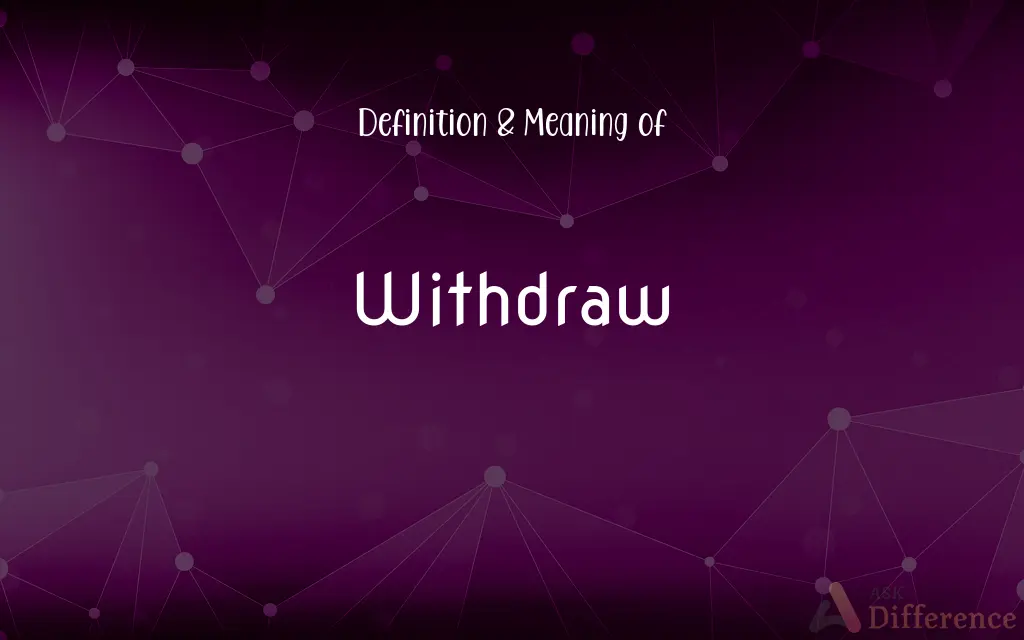
Table of Contents
Withdraw Definitions
To remove oneself from participation.
She chose to withdraw from the competition due to an injury.
To take money out of a bank account.
He went to the ATM to withdraw some cash for the weekend.
To retract a statement or belief.
The author had to withdraw his controversial claim after widespread criticism.
To pull back or move away from a position.
The army decided to withdraw from the occupied territory.
To take back or remove.
The company decided to withdraw the faulty product from the market.
To leave a place, especially to seek solitude or privacy.
Needing some peace, she withdrew to her room.
To stop providing or offering something.
Due to budget cuts, the library had to withdraw several services.
To detach emotionally or socially.
After the argument, he withdrew into his shell, avoiding everyone.
To cease to take part in an activity.
After years of research, the scientist withdrew from the project.
To retract a legal claim or charge.
The plaintiff decided to withdraw the lawsuit after reaching a settlement.
To take back or away; remove
Withdrew his hand from the cookie jar.
To cause to leave or return
The government withdrew its diplomats from the capital.
To remove (money) from an account.
To turn away (one's gaze, for example).
To draw aside
Withdrew the curtain.
To remove from consideration or participation
Withdrew her application.
Withdrew his son from the race.
To recall or retract
Withdrew the accusation.
To move or draw back; retire
The lawyers withdrew to the judge's chambers.
To leave or return, as from a military position.
To remove oneself from active participation
Withdrew from the competition.
To become detached from social or emotional involvement
After the snubbing, he withdrew into a shell.
To recall or remove a motion from consideration in parliamentary procedure.
To discontinue the use of a drug or other substance, especially one that is addictive.
To react physiologically and mentally to this discontinuance, often while experiencing distressing symptoms.
(transitive)
To draw or pull (something) away or back from its original position or situation.
To take away or take back (something previously given or permitted); to remove, to retract.
To cause or help (someone) to stop taking an addictive drug or substance; to dry out.
To take (one's eyes) off something; to look away.
(figuratively)
To distract or divert (someone) from a course of action, a goal, etc.
To extract (money) from a bank account or other financial deposit.
(intransitive)
Chiefly followed by from: to leave a place, someone's presence, etc., to go to another room or place.
Chiefly followed by from: to stop taking part in some activity; also, to remove oneself from the company of others, from publicity, etc.
To stop talking to or interacting with other people and start thinking thoughts not related to what is happening.
To stop taking an addictive drug or substance; to undergo withdrawal.
Of a man: to remove the penis from a partner's body orifice before ejaculation; to engage in coitus interruptus.
An act of drawing back or removing; a removal, a withdrawal or withdrawing.
(law) withdraught
To take back or away, as what has been bestowed or enjoyed; to draw back; to cause to move away or retire; as, to withdraw aid, favor, capital, or the like.
Impossible it is that God should withdraw his presence from anything.
To take back; to recall or retract; as, to withdraw false charges.
To retire; to retreat; to quit a company or place; to go away; as, he withdrew from the company.
Pull back or move away or backward;
The enemy withdrew
The limo pulled away from the curb
Withdraw from active participation;
He retired from chess
Release from something that holds fast, connects, or entangles;
I want to disengage myself from his influence
Disengage the gears
Cause to be returned;
Recall the defective auto tires
The manufacturer tried to call back the spoilt yoghurt
Take back what one has said;
He swallowed his words
Keep away from others;
He sequestered himself in his study to write a book
Remove something concrete, as by lifting, pushing, taking off, etc. or remove something abstract;
Remove a threat
Remove a wrapper
Remove the dirty dishes from the table
Take the gun from your pocket
This machine withdraws heat from the environment
Break from a meeting or gathering;
We adjourned for lunch
The men retired to the library
Retire gracefully;
He bowed out when he realized he could no longer handle the demands of the chairmanship
Remove (a commodity) from (a supply source);
She drew $2,000 from the account
The doctors drew medical supplies from the hospital's emergency bank
Lose interest;
He retired from life when his wife died
Make a retreat from an earlier commitment or activity;
We'll have to crawfish out from meeting with him
He backed out of his earlier promise
The aggressive investment company pulled in its horns
Withdraw Snonyms
Retract
To take back an offer, statement, or opinion.
The politician had to retract his earlier statement due to public outcry.
Recede
To move back or away from a limit or point.
After the flood, the waters slowly receded.
Rescind
To revoke, cancel, or repeal a law, order, or agreement.
The government decided to rescind the controversial law.
Pull out
To leave or exit a place, situation, or agreement.
The company decided to pull out of the merger talks.
Seclude
To isolate or withdraw oneself from others.
The writer secluded herself in the countryside to finish her novel.
Abstain
To choose not to participate or involve oneself in something.
He abstained from voting on the issue due to a conflict of interest.
Retreat
To move back or withdraw, especially from a difficult situation.
The troops had to retreat after suffering heavy losses.
Renounce
To formally declare one's abandonment of a claim, right, or possession.
The heir decided to renounce his claim to the family estate.
Recall
To officially order the return of a product.
The manufacturer issued a recall for the defective appliances.
Disengage
To detach or release oneself from involvement.
The activist disengaged from the campaign to focus on personal matters.
Withdraw Idioms & Phrases
Withdraw one's words
To take back what one has said.
Realizing his mistake, he quickly withdrew his words.
Withdraw from the world
To live in seclusion or avoid social interactions.
The poet chose to withdraw from the world and live in solitude.
Withdraw into one's shell
To become introverted or less communicative.
After the criticism, she withdrew into her shell.
Withdraw in favor of
To step aside or give up one's position to benefit someone else.
The incumbent decided to withdraw in favor of a younger candidate.
Withdraw one's gaze
To look away from something or someone.
Unable to bear the sight, he withdrew his gaze.
Withdraw from circulation
To remove something from general use or availability.
The old currency was withdrawn from circulation.
Withdraw from contention
To no longer compete or be considered as a potential winner.
After the scandal, the nominee withdrew from contention.
Withdraw one's hand
To stop helping or supporting someone.
When he continued to make poor choices, his friends withdrew their hands.
Withdraw to the sidelines
To remove oneself from active participation.
After the injury, the player had to withdraw to the sidelines.
Withdraw into a cocoon
To isolate oneself, typically during a period of change or self-reflection.
He withdrew into a cocoon after losing his job.
Withdraw one's support
To stop supporting or backing a person, group, or cause.
Due to the scandal, many withdrew their support.
Withdraw in haste
To leave quickly, often to avoid a negative situation.
As the storm approached, they withdrew in haste.
Withdraw from the fray
To remove oneself from a conflict or competition.
Feeling overwhelmed, she withdrew from the fray to regain her composure.
Withdraw one's affection
To stop showing love or fondness to someone.
Feeling hurt, she withdrew her affection from him.
Withdraw the olive branch
To retract an offer of peace or reconciliation.
After the refusal, he withdrew the olive branch.
Withdraw in disgust
To leave a place or situation because it is morally reprehensible.
Many withdrew in disgust after the truth was revealed.
Withdraw to lick one's wounds
To retreat in order to recover from a defeat or setback.
After the failed venture, he withdrew to lick his wounds.
Withdraw one's presence
To leave a location or situation.
Feeling out of place, she quietly withdrew her presence from the party.
Withdraw the curtain
To reveal something that was hidden.
The documentary withdrew the curtain on many industry secrets.
Withdraw behind closed doors
To discuss or negotiate in private.
The leaders withdrew behind closed doors to reach an agreement.
Withdraw Example Sentences
He decided to withdraw his application after finding another job.
The company had to withdraw its latest software update due to glitches.
The general ordered the troops to withdraw at dawn.
The country decided to withdraw its ambassador in protest.
They chose to withdraw to their cabin in the mountains for some solitude.
She felt overwhelmed at the party and decided to withdraw early.
Common Curiosities
How many syllables are in withdraw?
Withdraw has two syllables.
What is a stressed syllable in withdraw?
The stressed syllable in "withdraw" is the second syllable, "draw."
Why is it called withdraw?
It is called "withdraw" from the Middle English word "withdrawen," which means "to draw back," reflecting the action of pulling back or retreating.
How do we divide withdraw into syllables?
Withdraw is divided into syllables as with-draw.
How is withdraw used in a sentence?
Withdraw is used to indicate the act of removing or pulling back from a situation, place, or commitment.
What is the pronunciation of withdraw?
Withdraw is pronounced as /wɪðˈdrɔː/ or /wɪθˈdrɔː/.
What is the first form of withdraw?
The first form of withdraw is "withdraw."
What is the verb form of withdraw?
The verb form of withdraw is "withdraw," as in "to withdraw something."
What is the root word of withdraw?
The root word of "withdraw" is "draw," which means to pull or drag.
What is another term for withdraw?
Another term for withdraw is "retract" or "pull out."
What is the singular form of withdraw?
The singular form is "withdraw."
Is withdraw an adverb?
No, withdraw is not an adverb.
Is withdraw a vowel or consonant?
The word "withdraw" starts with a consonant 'w'.
Is the withdraw term a metaphor?
Withdraw can be used metaphorically to represent leaving or backing out from various situations.
Is the word withdraw imperative?
Withdraw can be used in an imperative form, e.g., "Withdraw from the area immediately."
What part of speech is withdraw?
Withdraw is a verb.
Is the word withdraw a Gerund?
"Withdrawing" would be the gerund form of the verb withdraw.
Which vowel is used before withdraw?
No specific vowel is used before "withdraw"; it depends on the context of the sentence.
What is the second form of withdraw?
The second form of withdraw is "withdrew."
What is the plural form of withdraw?
Withdraw does not have a plural form as it is a verb; its tense changes instead.
Is withdraw a collective noun?
No, withdraw is a verb, not a collective noun.
Is the word “withdraw” a Direct object or an Indirect object?
Withdraw is a verb and thus cannot be a direct or indirect object. However, in sentences like "He decided to withdraw his candidacy," "candidacy" is the direct object of the verb "withdraw."
Which article is used with withdraw?
Articles are not typically used directly with the verb withdraw.
What is the third form of withdraw?
The third form of withdraw is "withdrawn."
What is the opposite of withdraw?
The opposite of withdraw is "advance" or "deposit" (in the context of money).
Is withdraw a noun or adjective?
Withdraw is a verb, not a noun or adjective.
Is withdraw an abstract noun?
No, withdraw is a verb, not a noun.
Is withdraw a negative or positive word?
Withdraw is neutral; its connotation depends on the context in which it is used.
Is withdraw a countable noun?
Withdraw is not a noun; it is a verb and therefore not countable.
Which determiner is used with withdraw?
Determiners are not typically used with the verb withdraw.
Which preposition is used with withdraw?
Prepositions like "from" are commonly used with withdraw, e.g., "withdraw from a competition."
Which conjunction is used with withdraw?
Conjunctions are not specifically associated with withdraw; it depends on the sentence structure.
Share Your Discovery
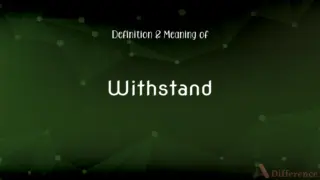
Previous Term
Withstand Definition and Meaning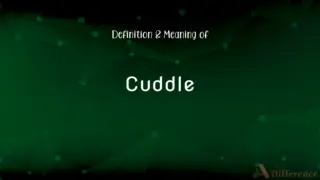
Next Term
Cuddle Definition and MeaningAuthor Spotlight
Written by
Tayyaba RehmanTayyaba Rehman is a distinguished writer, currently serving as a primary contributor to askdifference.com. As a researcher in semantics and etymology, Tayyaba's passion for the complexity of languages and their distinctions has found a perfect home on the platform. Tayyaba delves into the intricacies of language, distinguishing between commonly confused words and phrases, thereby providing clarity for readers worldwide.
Co-written by
Fiza RafiqueFiza Rafique is a skilled content writer at AskDifference.com, where she meticulously refines and enhances written pieces. Drawing from her vast editorial expertise, Fiza ensures clarity, accuracy, and precision in every article. Passionate about language, she continually seeks to elevate the quality of content for readers worldwide.







